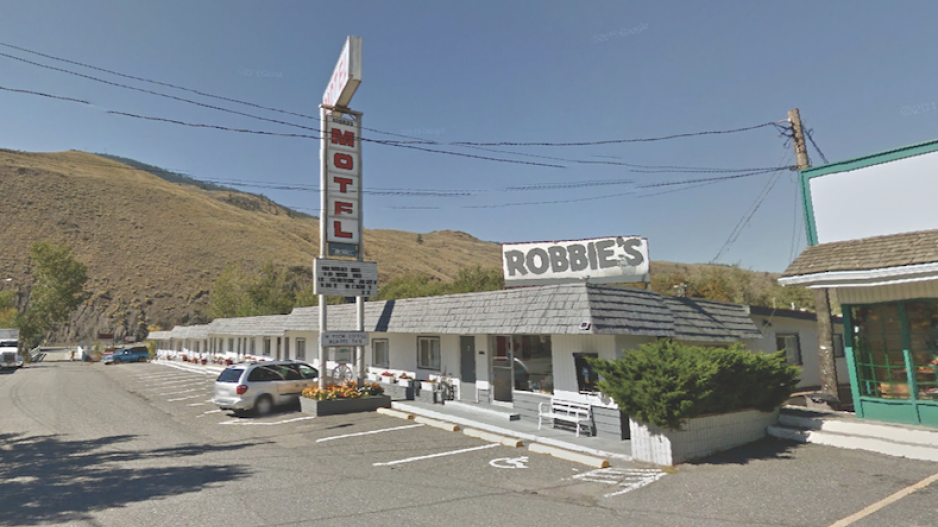Rajinder Singh returned home to Cache Creek in mid-July after a two-week evacuation to nearby Kamloops, when an Ashcroft-area fire was bearing down on her community of slightly more than 1,000 people.
The good news was that the 18-suite Robbie’s Motel, which she manages with her husband, Inderjit Singh, was still standing. Smoke, however, continued to choke the air and no tourists were keen to spend time in the area – even if they were able to get there.
“We have insurance but I don’t know if we’re going to get any money,” she told Business in Vancouver.
“We just don’t know yet.”
Taylormade Cakes and Sweets owner Brenda Taylor finds herself in a similar situation.
Taylor’s bakery first had to shut down for a couple of days in July because road closures kept her family from returning to Williams Lake from a family reunion at Anahim Lake. They then had to evacuate for about two weeks on July 15.
“Business disruption insurance doesn’t really cover an evacuation,” Taylor said. “They provide you with a very small amount and I’ve got to do all sorts of leaping through hoops to prove my expenses.”
Fortunately for Taylor, her landlord has given her an extension on paying rent. Some suppliers have also given her leeway on payment deadlines.
RBC has reduced the minimum payment on her credit card bills, but she expects they will still charge her interest on any added debt.
Other institutions, such as Vancity, have reached out to a small number of Visa customers in affected areas to let them know that they can defer payments for three months and not incur interest.
B.C. wildfires this summer forced more than 50,000 people to evacuate their homes and businesses. But the damage could have been much worse.
Government statistics at press time showed that only 71 homes were destroyed by fire. Another 140 sheds and small buildings were destroyed while just three commercial buildings were ruined.
Insurance Bureau of Canada (IBC) director of government relations Aaron Sutherland compared that with the roughly 2,400 buildings that were lost last year in the Fort McMurray blaze.
“We have been relatively lucky in terms of the property impact here,” Sutherland said. “It is a far cry from what we might have expected at the outset of these fires.”
IBC data shows that the Fort McMurray fires resulted in $3.7 billion in insurance payouts. That amount towers above the $127 million that IBC estimates will be paid out to recipients disrupted by B.C. wildfires so far this year.
Unlike home insurance, which largely follows a template contract, business insurance plans vary widely. Basic business insurance does not cover business interruption, Sutherland said, adding that his organization does not track the percentage of business owners who have purchased business interruption insurance.
“It is business interruption insurance that is the key, as that is where we would see more of the insured claims coming in,” he said. “It is a kind of insurance that we suggest business owners buy.”
The cost of insurance will likely not rise as a result of one severe fire season because insurance companies expect to have some years that are worse than others, he said. They are also well capitalized for these kinds of disasters.
“As we continue to see these kinds of events happening more and more, both in this province and this country, it really is a reinforcement of the absolute value that insurance brings.”
Those without business disruption insurance may be eligible for other funding.
The B.C. government, in partnership with the Red Cross, has introduced an emergency $1,500 grant for small businesses, First Nations and non-profits located in areas that were evacuated, had an alert due to wildfire or were affected by highway closures.
To be considered eligible for the grant, applicants must have fewer than 50 employees, have been in operation on or before July 7, 2017, have been financially affected by the 2017 B.C. wildfires and have a net income of less than $250,000 per year.
Recipients must also have resumed business or intend to resume operations as soon as possible and have the business or livelihood as the primary source of income.
The Ministry of Tourism, Arts and Culture is also providing $200,000 each to the Cariboo Chilcotin Coast Tourism Association, the Thompson Okanagan Tourism Association and the Kootenay Rockies Tourism Association to help support tourism businesses in those regions. •




